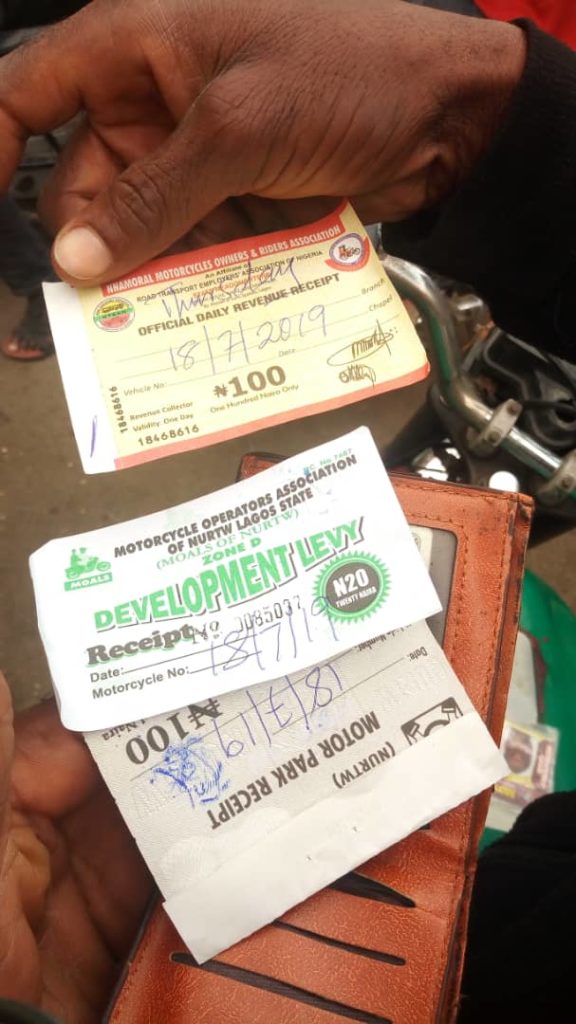After months of bickering, bike-hailing companies have finally reached an agreement with the National Union of Road Transport Workers (NURTW) and Road Transport Employers’ Association of Nigeria (RTEAN), two of the biggest road transport unions in Nigeria.
According to sources privy to the discussions, riders affiliated with these startups will buy a ₦500 ($1.38) daily ticket that allows them to operate anywhere in the state without the fear of harassment.
Negotiations have been on for months between bike hailing companies and the two unions. For months, the unions have harassed riders affiliated with ORide, MAX and Gokada, forcing them to pay levies to operate in many parts of Lagos.

After a series of meetings, the unions had originally proposed a ₦1000 ($2.75) daily ticket which was rejected by the startups.
The new agreement was brokered by the Lagos State government, which has stood by as the unions extorted, harassed and beat up bike-hailing riders.
As part of the new ticketing arrangement, the NURTW and RTEAN will each receive ₦200 ($0.55), while ₦100 ($0.28) will go to the local government where the ticket was sold.
“So every rider will purchase these tickets and it will allow them to operate anywhere in Lagos,” said the source who did not want to be named.
Lagos is still planning a bike-hailing license
But the deal does not provide much relief for bike-hailing companies. While they may not have to worry about transport unions, the Lagos State government is still planning to go ahead with its proposed licence for startups.
“After settling with the unions we will come for our own,” a special adviser to the Lagos State governor allegedly told the startups, the source said.
MAX, ORide and Gokada are three of the biggest bike-hailing companies around, with over 1,000 riders each. The new agreement means each of their riders will pay ₦182,500 ($501.93) to operate in Lagos for 365 days. This translates to ₦182.5 million ($501,935) for 1,000 bikers, a sum that is nearly eight times bigger than the ₦25 million ($68,758) licence the Lagos Government was proposing in July.
This begs the question of who will cover the fee? Will startups increase fares slightly? Or will bikers cover the fares themselves?
It’s unclear at this point if the bike-hailing companies will give riders these levies or the riders will pay out of pocket.
A high-ranking official at a bike-hailing startup confirmed the conversations but couldn’t say when the levies are due to kick in.
Bikers affiliated with these companies are already quite familiar with daily levies from these unions. They pay between N500 and N1,000 or more to operate in certain neighbourhoods. However, many bikers avoid neighbourhoods where levies are too high and rampant, making it hard for prospective passengers to hail bikes in these locations.
Will the new ticket finally allow these bikes to operate freely in Lagos? We’ll wait and see.




















